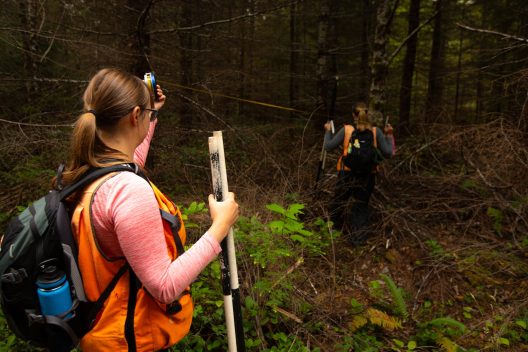
Since transferring to the University of Washington in her junior year, SEFS alumna Ally Kruper has made the most of opportunities to get involved outside the classroom. Her passion for horticulture and working with communities led to an internship with the SER-UW Native Plant Nursery at the Center for Urban Horticulture.
“It was a transformative experience,” said Kruper. “I knew from previous volunteering experiences that I liked working with other students and groups, and feeling like I’d made an impact on our community. The SER-UW Native Plant Nursery was a great combination of those things,” said Kruper.
Working at the Nursery became a fixture for Kruper throughout her undergraduate studies, as she moved from intern to student assistant, to managing the nursery as an AmeriCorps member. From organizing work parties to seedling stratification, planning, potting, and pest management, Kruper expanded her knowledge of horticulture and began to find other ways to pursue her interests outside of the classroom.
Kruper participated in the Olympic Natural Resources Center (ONRC) summer internship program, where she got involved with forest ecology and management research. Collecting data she would later use for her own capstone project, Kruper’s summer internship at ONRC offered an avenue into research, and eventually graduate school. Using skills from her coursework in GIS and remote sensing applications, she used airborne lidar, a remote sensing technology that maps the surface of the Earth, to identify red alder in a long-term ecosystem productivity experiment.
Now, as a graduate student at ONRC, Kruper helps lead the programs that inspired her own path into research. For her thesis, Kruper is using high resolution drone lidar data to map western redcedar populations on the Olympic Peninsula in order to monitor this declining species and understand the geographic distribution of this cultural keystone tree.
“The inspiration for my project came from talking to tribal natural resource department employees about what they wanted to see on the Olympic Peninsula, and they wanted to see more western redcedar planted in accessible places. It’s a culturally important species that the Quileute tribe use for bark harvesting ceremonies,” said Kruper. Western redcedar is a long-lived conifer with high value timber that has economic, recreational, and cultural value in the Pacific Northwest. Due to overharvesting in the 20th century, deer and elk grazing, and the impacts of climate change, western redcedar is far more scarce on the Olympic Peninsula than it was historically.
Reflecting on her experiences since joining SEFS, Kruper stressed the importance of getting involved in activities outside of class. “The connections I made were really useful. Getting hands-on field experience in such a supportive environment introduced me to the world of research, more than any class could have, and led me into graduate school,” said Kruper.

